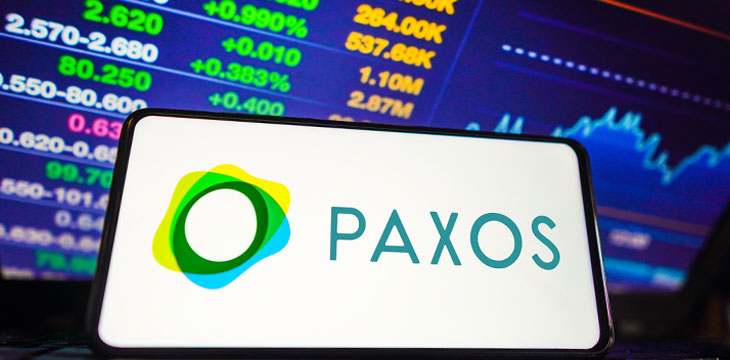|
Getting your Trinity Audio player ready...
|
Paxos has become the latest digital asset firm to announce its exit from the Canadian market as regulators become increasingly tough on the sector.
In an announcement on its website, the company called on its customers to withdraw their funds “at your earliest convenience.” Paxos will shut down unfunded accounts by May 9 and disable all trading by June 2. However, users can still withdraw their funds after this deadline.
“Paxos has determined it will no longer support customers in Canada moving forward. Given your Paxos account remains unfunded, your account will be disabled on May 9th, 2023,” read an email sent to some users.
Founded in 2012 as itBit exchange, Paxos has expanded its services to include a digital asset brokerage, securities settlement, commodities settlement, and PAX Gold, a gold-backed digital token. Paxos has also ventured into the issuance of stablecoins and wholly owns and manages BUSD, the Binance stablecoin recently caught up in a probe in the United States.
While Paxos didn’t explicitly blame increasing regulations for its exit from the Canadian market, sources say the company has left the country due to changes in crypto regulations.
“Paxos is focused on serving enterprise clients and their growth into the digital assets ecosystem. While our platform will no longer support Canadian customers in the immediate term, we will reassess our presence in this region in partnership with our clients’ evolving needs,” a Paxos spokesperson said.
On its website, the company stated that it will reassess its readiness to re-enter the Canadian digital asset market in cooperation with the Ontario Securities Commission (OSC).
Canada’s Crypto regulations cause a stir
Paxos joins OKX and decentralized exchange dYdX, which also recently announced exits from Canada. OKX blamed “new regulations” for its exit last month, with dYdX stating last week that it hopes to re-enter the market once the regulatory climate changes.
As Paxos and Co. flee Canada, Coinbase (NASDAQ: COIN) and Gemini intend to stay. Gemini announced this week that it has filed a pre-registration undertaking with the OSC, “a key step in our application to register as a restricted dealer with the OSC.”
Two weeks earlier, sources told one outlet that Coinbase is weighing applying for the required licenses to operate in the Canadian market under the new regulatory regime.
“We remain as committed as ever to the Canadian market as a core component of our international road map,” Elliot Suthers, the exchange’s communications director, later clarified.
Paxos’ exit from Canada is the latest blow for the company, which made headlines in 2015 by becoming the first exchange to obtain a license from New York State’s Department of Financial Services.
The company’s application for a national banking charter expired at the end of March at the hands of the Office of the Comptroller of the Currency (OCC). It first applied in December 2020 and received “preliminary conditional approval.” The expiry doesn’t impact the company’s business and leaves room for another application in the future, a spokesperson for Paxos stated at the time.
In February, the U.S. SEC sent a Wells notice—which indicates that the regulator intends to act against an entity—to Paxos over its issuance of BUSD. Shortly after, Paxos announced it would cease issuing the stablecoin, even as it “categorically disagreed” with the SEC over BUSD being a security.
Watch: Tokenizing Assets & Securities on Blockchain

 02-15-2026
02-15-2026 




